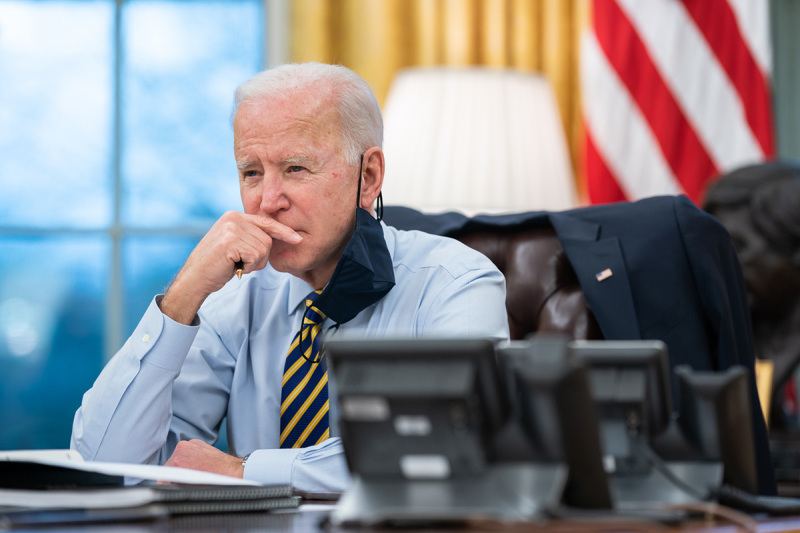China targeting U.S. service members on social media in "virtual espionage" spy efforts
Posted by Temmy
Tue, January 28, 2025 11:31am

The Chinese intelligence officer who convinced Thomas Zhao to hand over sensitive information about the U.S. military seemed to know the 24-year-old U.S. Navy petty officer had a passion for the stock market.
The agent approached Zhao in a stock trading chat group on the Chinese-owned social media network WeChat, CBS News learned in interviews with people involved in the case. But chats about investment strategies soon veered into sensitive areas, including questions about Naval exercises in the Pacific and designs for radar installations.
The Zhao case represents a new dimension to Chinese covert activities that counterintelligence officials are calling "virtual espionage." The practice, in which Chinese intelligence officers target members of the military and others of high interest on social media, draw them into correspondence, and extract sensitive information from them, is a rising threat, officials told CBS News.
"They will turn over every stone to try and collect what they can," Kevin Vorndran, who leads the FBI's counterintelligence division, told CBS News in a rare television interview. "They are certainly endeavoring to target as many people as they can."
Over the course of two years, a Chinese intelligence officer paid Zhao, a U.S. citizen and Navy engineer, about $15,000 to take photographs and videos of restricted areas at the Southern California base where he worked, court records revealed.
With his relatively low rank, as well as a low-level security clearance, Zhao may have seemed like an unlikely target. Yet Vorndran and other U.S. officials told CBS News that intelligence officers working for the Chinese government are trolling professional networking sites, including LinkedIn, to seduce an array of American service members and others who hold U.S. government security clearances into turning over sensitive information.
"On professional networking sites, members of the military, former members of the military, list their résumés," Vorndran said. "It exposes their expertise. And through that, it makes targeting by an intelligence service simple to accomplish."
A LinkedIn spokesperson did not respond to a question about whether Chinese intelligence officers were using the platform to identify potential targets, but did say in a statement that fraudulent accounts violate the company's terms of service.
"Our teams use a variety of automated technologies, combined with a team of trained investigation experts and member reporting, to help stop bad actors and to keep experiences on LinkedIn professional," the spokesperson said.
The tactic is low risk and high reward — a hallmark of the kind of "virtual espionage" China began leaning on when COVID made it more difficult for spies to travel abroad, according to counterintelligence officials.
"The intelligence officer can sit behind their desk back in China and reach out to numerous individuals all at once," said Ryan Norris, a special agent with the Navy's Criminal Investigative Service. "They are reaching out to as many people as possible and hoping to get some response."
In the last two years, federal law enforcement has identified a dozen such cases and brought charges against four service members recruited by suspected undercover agents of China. Vorndran said given the difficulty in policing this kind of outreach, he's concerned the number could be far higher.
"We investigate everyone we can identify and predicate an investigation on," said Vorndran. "The ones that we don't know are the ones that concern me and keep me up."
A spokesperson for China's embassy denied knowledge of the Zhao case, and did not address a question about whether its intelligence officers were contacting U.S. servicemembers online and soliciting sensitive information.
"China hopes that the United States will stop hyping up the so-called 'Chinese espionage' risk and stop exaggerating the 'China threat theory,' and inject more stability into Sino-US relations instead of setting up obstacles," the embassy spokesperson said in a statement.
Easy money
In August 2023, agents with the FBI and NCIS descended on the Ventura County Naval Base, apprehended Zhao, and took him into a small room for questioning. A video of the interrogation, obtained by CBS News, shows Zhao admitting he sent sensitive military information to an individual he met online.
While Zhao said the individual seemed "fishy," it does not appear he knew he was dealing with a Chinese intelligence officer. And while he considered passing along photographs of what he was working on as an easy way to make money, he stopped short of sending any classified information.
"When I tried to cut off the relationship with him, it's already kinda late," Zhao said in the interrogation, telling the federal agents he felt "trapped."
Following the interrogation, Zhao was arrested. He later pleaded guilty to bribery and conspiracy charges, and is currently serving a 27-month federal sentence. Prosecutors determined his actions did not rise to the level of espionage. Still, Norris said he believes Zhao's actions amount to a betrayal.
"He absolutely betrayed his country," said Norris, who questioned Zhao during the interrogation. "I think over the past two years he'd had a relationship that he knew was nefarious, and I think he was finally caught in what he was doing."
Tarek Shawky, Zhao's attorney, said his client was also to some degree a victim of a scam. He said their social media conversations revealed the Chinese intelligence officer sought to build up a level of trust before asking for sensitive information.
"At a certain point, I think the human condition is that you want to suspend a little bit of your better judgment because of that human connection," Shawky said. "That's what makes it so dangerous."
In an interview with CBS News, Zhao's wife Jianyu Ren said her husband acknowledged making a mistake, but she denied he would ever willfully sell out his country.
"That's not him," Ren said. "If he had known this person was working for the Chinese government or anybody in China, he wouldn't have done that."
Source
|








